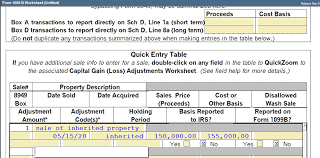Every estate planner must deal with the generation-skipping transfer tax at some point (GSTT). Many practitioners are unwilling to take on the issue since this tax has a reputation for being as dangerous as the water. However, after you remove all the complexities, you’re left with a relatively straightforward set of scenarios to watch. You’ll need a good understanding of the generation-skipping trust and how the tax-transfer exemption work. This article will assist you in identifying and advising clients who are liable for the generation-skipping transfer tax.
What Is a Generation-Skipping Trust?
A generation skipping trust is a legally enforceable trust that skips the generation directly below the individual who created it and moves on to the next. Essentially, it bypasses your children and goes straight to their children, your grandkids. The money in this trust is never officially owned by the generation it is skipping; instead, it flows directly to the next generation.
Blood relation is not required for a generation-skipping trust to function. Anyone who is at least 37.5 years younger than you and is not your spouse or ex-spouse can be named as the beneficiary of a generation-skipping trust. If that person isn’t your grandchild — a buddy, great-nephew, or niece — a generation-skipping trust works just as well.
How Does Generation-Skipping Trust Work?
According to the United States Code, Generation-skipping trust rules establish particular limits for who can be chosen as the “skip person.” According to these rules, the skip person, or beneficiary, must be “a natural person assigned to a generation two or more generations below the transferor’s generation assignment.”
Generation-skipping trusts allow the settlor to avoid estate taxes imposed if the assets were transferred to the offspring, i.e., the next generation.
To create a generation-skipping trust, you should think about a few things.
First, the federal generation-skipping tax (GST) exemption amount raised to $11.4 million in 2019 and $11.58 million in 2020, indexed for inflation. This implies you can claim a lifelong generation-skipping tax exemption up to that amount on the property you transfer.
Second, no regulation prevents the next generation from obtaining asset earnings as long as the original assets remain in the skip person’s trust.
Finally, the recipient does not have to be a blood relative. A generation-skipping trust can be named after anyone who is at least 37 12 years younger than you.
Generation Skipping Trust Tax
A properly drafted generation-skipping trust will assist the grantor in avoiding numerous rounds of the estate tax in the future, but there are three major types of taxes that affluent persons and estates should consider:
- The estate tax
- Gifts Tax
- Generation-skipping transfer tax (GST tax)
Who is Obligated to Pay Estate Taxes?
If an estate’s value exceeds the estate tax exemption, estate taxes must be paid. The federal estate tax is levied on estates worth more than $11.58 million in 2020 (rising to $11.7 million in 2021). The lifetime exemption amount is adjusted annually to account for inflation. Estate taxes are also imposed in 12 states and the District of Columbia. Some state estate tax exemptions are the same as the federal exemption, while others are less than $1 million. States are also free to determine their own tax rates.
Because it functions in conjunction with the gift tax and the generation-skipping tax, the lifelong estate tax exemption is sometimes known as the unified credit.
Gifts Tax
You can donate gifts (money, property, or other assets) without paying taxes during your lifetime as long as the total value of your gifts does not exceed your lifetime exclusion, which is the same as your estate tax exemption: $11.58 million in 2020 and $11.7 million in 2021. There is, however, an annual exclusion of $15,000, and each time you make a gift for more than that amount, your lifetime exclusion (and thus your inheritance tax exemption) is reduced by the excess value of the gift. So, if you’ve given away $5 million in gifts during your lifetime (in excess of the annual restrictions), your estate will owe tax if it’s worth more than $6.58 million if you die in 2020 or $6.7 million if you die in 2021.
Generation-Skipping Transfer Tax
A generation-skipping transfer (GST) tax exists to discourage people from avoiding multiple rounds of the estate tax. The GST tax is levied when someone makes a direct gift of money or other assets to someone who is at least 37.5 years younger than them, even if the donation is made through a trust. The generation-skipping trust tax rate is a flat 40% on transfers that exceed the exemption amount. So, the generation-skipping trust tax exemption is $11.58 million in 2020 ($11.7 million in 2021), which is the same as the estate tax exemption and the lifetime gift tax exclusion, thus most people do not have to pay it. The generation-skipping trust tax is also known as the GSTT or the transfer tax.
However, if you have a large estate, a properly drafted generation-skipping trust can be a powerful instrument for reducing the tax burden for you, your estate, and your heirs. It is best to consult with a financial advisor or an estate attorney to properly grasp the nuances of this tax and trust.
How to Build a Generation Skipping Trust
Generation-skipping trusts are complex, and the specifics of your trust will be determined by your individual goals. Do you, for example, intend to distribute trust income to people throughout numerous generations? Do you understand how your total estate strategy may impact a surviving spouse?
To get the full benefits of a generation-skipping trust, you must consult with an experienced estate planning attorney who is familiar with the IRS code. This trust, like all others that preserve tax benefits, must be irrevocable, which means you cannot amend it or retain the right to do so. (At the same time, you may be able to function as trustee and, to some extent, direct how the assets of the fund are managed or invested.)
Consider putting your trust in someone sooner rather than later. Having the trust established decades before your death will assist you in making other critical estate planning decisions, such as whether to make large donations to anyone, how to structure your final will, and how your estate plan affects your spouse.
The Advantages of Generation-Skipping Trusts
For some estates, but not all, a generation-skipping trust is an excellent estate planning tool. If you’re thinking about establishing one or more GST trusts, make sure you’ll be able to reap the following benefits:
- A generation-skipping trust is an excellent planning tool for larger estates. If you have a substantial estate, you can use it to personally ensure that your family legacy is protected for at least two generations. This means that not only will your own children benefit, but so will your grandkids.
- You can avoid paying estate taxes since the assets held in the GST trust will not be distributed directly to your children. Estate taxes will be assessed only after the property is delivered to your designated executor (such as your grandchild.) The family legacy would have been taxed twice if you had given your possessions directly to your kid, who then bequeathed their fortunes to their children.
- GST trust assets are not included in your child’s estate: Any assets placed in a generation-skipping trust are not part of your child’s estate. This preserves their estate and allows them to have complete control of their trusts during their lifetime.
The Disadvantages of Generation-Skipping Trust
Before you agree to form a GST trust, you should be informed of the potential pitfalls. Certain disadvantages, however, will not apply in all circumstances.
- There may be generation-skipping taxes: The generation-skipping transfer (GST) tax was created to prevent households from avoiding estate taxes through multiple generations. If your estate exceeds the $11.7 million exemption, you will be subject to the GST tax (40 percent) and the excess estate tax (40 percent). Fortunately, many households do not exceed this exemption threshold and will not be liable for the tax.
- The administrative burden of running the trust: Although trusts are a robust estate planning tool, you should know that they demand some thinking, attention, and resources. However, it is worth your time and effort because they are intended to maximize and prolong the legacy passed down through your family. It is best to consult with an estate planning agency or professional to set up the kind of trust most appropriate for your financial situation.
- It might not be desirable for youngsters to be skipped: The generation-skipping trust is intended to protect your children and future generations. Your children can still benefit from income earned by assets kept in trust if your estate is large enough. To financially assist your children, you must determine whether the trust’s income is sufficient.
Is It Possible to Revoke a Generation-Skipping Trust?
A generation-skipping trust is an irreversible trust. This kind of trust cannot be modified or revoked. On the other hand, building an irrevocable trust does not imply giving up all control. You can still include provisions that allow you to direct how the estate’s assets are invested and distributed. Visit our website to learn more about the distinctions between revocable and irrevocable trusts.
Who Needs a Generation-Skipping Trust?
A generation-skipping trust is an effective estate planning instrument, particularly for those with substantial estates. They are an excellent approach to assist your family in avoiding paying estate taxes twice, first to your children and again to your grandkids. Although your grandkids (or anyone at least 37 1/2 years younger than you) are the trust’s beneficiaries, your children also profit from it. They can not only collect any income generated by the trust’s assets but also retain their estate wholly independent from it.
However, the GST trust is not suitable for everyone. Be careful that any trust exceeding the $11.7 million exemption may be subject to the GST and estate taxes. Furthermore, this trust may not be appropriate for smaller estates, in which case you may prefer to distribute assets directly to your children.
How to Use a GST Lifetime Exemption
The lifetime exemption from GST has certain benefits. It can be used for any combination of transactions made during your lifetime or at your death.
Here are two possible techniques for utilizing the lifetime exemption:
- During your lifetime, you donate up to $12.06 million to a trust that eventually distributes assets to your grandkids, protecting expected appreciation for future generations.
- You can leave up to $12.06 million in lifetime trusts for your children when you die. When your children pass away, the trusts’ $12.06 million (plus any appreciation) passes to your grandkids tax-free.
The federal estate, gift, and generation-skipping tax exemptions will be consolidated and indexed for inflation in future years. However, there is one significant distinction. With an estate tax, the unused exemption of the first spouse to die might be applied to the personal exemption of the surviving spouse. The GST exemption does not have the same level of adaptability. Any unused GST exemption at the time of your death is forfeited.
How Does Skip Generation Inheritance Work?
A government tax on gifts and inheritances known as the generation-skipping transfer tax stops donors from avoiding estate taxes by giving gifts to grandkids instead of children. Grandchildren receive the same amount as if the inheritance came from their parent’s thanks to the generation-skipping transfer tax.
What Does a Trust’s Skip Person Do?
A family relative who is two or more generations younger than the donor and to whom assets are given or left in a will is referred to as a “skip person.”
Who Is Subject to the Generation-Skipping Transfer Tax?
When someone transfers assets to a “skip person,” either during their lifetime or after death, the generation-skipping tax is activated. A skip person is a person who are at least two generations below the transferor. The most frequent skip individuals are grandkids and great-grandchildren.
Who Is a Generation-Skipping Trust’s Trustee?
The trustee overseeing the GST Trust is empowered to provide income and principal to your kid, his or her offspring (your grandchildren), or in any other way that best suits your family’s needs.
Can a Trust Be Skipped Directly?
A transfer to a skip person that is liable to federal estate or gift tax is referred to as a direct skip. Only if the trust is a skip person is a property transfer to a trust considered a direct skip. When a single transfer of property skips two or more generations, only one direct skip happens.
Generation Skipping Trust FAQs
Who gets the income from a generation-skipping trust?
Although your grandkids (or anyone at least 37 1/2 years younger than you) are the beneficiaries, your children benefit from the trust as well. They can not only collect any income generated by the trust’s assets, but they can also retain their personal estate wholly independent from it.
Can a generation-skipping trust be broken?
Because a generation-skipping trust is irrevocable, it cannot be broken, modified, revoked, or dissolved in the same way that a revocable trust can be changed or amended at any moment.
Do generation-skipping trusts get a step up in basis?
If assets in a Bypass Trust for a spouse or a Generation-Skipping Trust for a child are transferred to another trust for others upon that person’s death, the Federal Estate Tax Code allows the basis in the selected assets to be “stepped up” to fair market value.






